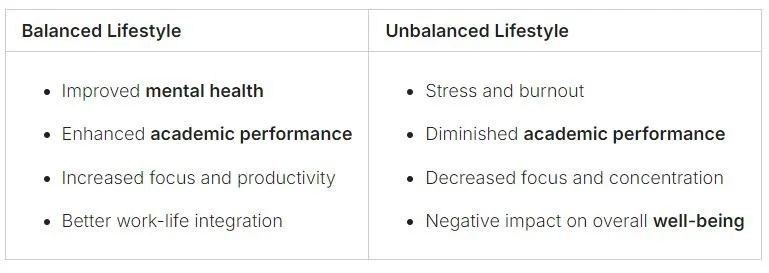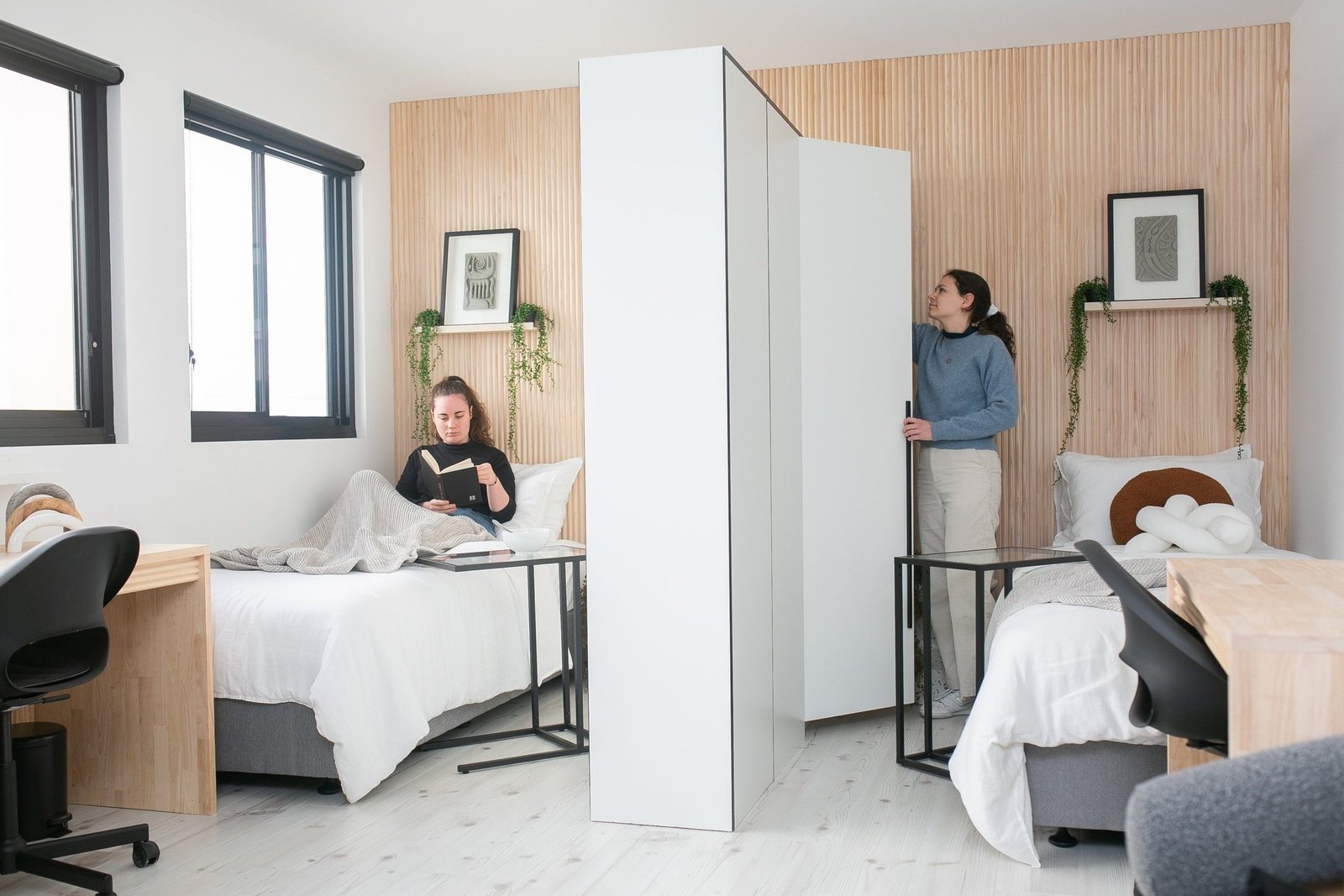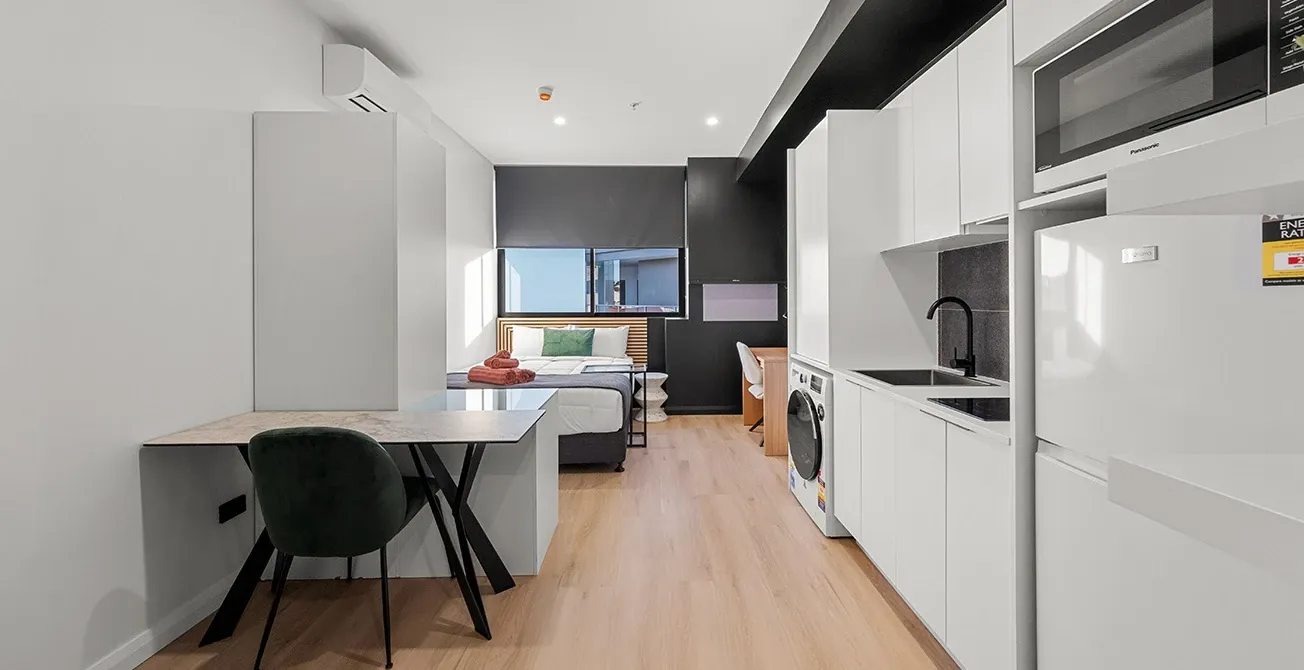As a student in Australia, have you ever felt torn between schoolwork and wanting to have fun? Finding a balance between studying and socializing is key to success and happiness. But, how do you manage to do both well?

Key Takeaways
-
Understand the importance of balancing studies and social life for optimal academic and personal success.
-
Identify the common challenges students face in managing academic workload and maintaining a healthy social life.
-
Discover effective time management strategies to maximize productivity and avoid burnout.
-
Learn how to prioritize self-care and well-being to support your academic and personal goals.
-
Explore ways to build and maintain a fulfilling social network while excelling in your studies.
Understanding the Importance of Striking a Balance
When chasing academic success, it’s easy to get lost in study demands. Students often see being busy as a sign of dedication. But, this can harm mental health and productivity. It’s key to see how personal life boosts academic success.
The Impact of an Unbalanced Lifestyle on Mental Health and Academics
Putting studies first can cause stress, burnout, and lower grades. Long hours without self-care hurt focus and productivity. Yet, a balanced life with personal time improves mental health and grades.
Recognizing the Role of Personal Life in Academic Success
Academic success is crucial, but personal life is just as important. A healthy social life, hobbies, and self-care boost focus and well-being. Balancing studies and personal time leads to better grades and goal achievement.

“A balanced lifestyle that incorporates personal time and well-being activities supports improved mental health, which in turn enhances academic performance.”
Identifying the Challenges of Balancing Studies and Social Life
Keeping a balance between school and social life is tough for many students. Up to 70% of college students struggle with their school work, jobs, and social life. This affects their happiness and grades. Many students work hard while trying to keep up with school and friends.
A big part of this problem is that many students have to work hard. They have to deal with school, jobs, and friends all at once. This is hard and can make them unhappy and stressed.
Managing Academic Workload and Time Commitments
Classes, homework, and studying take up a lot of time. This leaves little time for fun and friends. A study found that too much studying can make students stressed and tired.
Poorer students are more likely to drop out because of money problems. Not being able to balance school, work, and friends can make students unhappy and stressed. It can even lead to mental health issues like depression.
Overcoming Procrastination and Prioritizing Tasks
Putting things off and not feeling like studying can make it hard to balance life. Many college students have to work to support themselves. Finding time for school, work, and personal life is key to being happy and healthy.
Understanding why students procrastinate and how to manage stress is important. It helps them stay motivated and balanced.

“Engaging in both academic and social activities can help students develop holistically, learn new skills, gain new perspectives, and enrich their personalities.”
Having a balanced life can make students less stressed and happier. Learning to manage time and set priorities helps them grow and succeed in their careers.
Mastering Effective Time Management
Effective time management is key to a balanced life. It helps you be more productive during study times. This way, you have more time for fun and friends. The right tools and strategies are crucial for organizing your week.
Maximizing Productivity During Study Sessions
To get the most out of study time, avoid distractions and stay focused. Try the Pomodoro Technique for 25-minute work sessions with breaks. Also, set achievable study goals and divide tasks over 3-4 days to manage your work well.
Strategies for Organizing Your Weekly Schedule
-
Use digital tools, such as calendars and planners, to create a structured schedule that balances your academic, social, and personal commitments.
-
Prioritize tasks and activities, and learn to say “no” to unnecessary responsibilities to avoid overcommitting.
-
Delegate tasks whenever possible, both at work and at home, to lighten your load and create a supportive environment.
-
Dedicate time for self-care by setting aside a day or two each month to engage in leisure activities and prevent burnout.
-
Continuously reflect on your daily and weekly accomplishments to identify areas for improvement and refine your time management strategies.
Mastering time management boosts your school performance and work-life balance. It helps you succeed in all areas of life.

Balance Studies and Social Life
Being a university student in Australia means juggling school and social life. It’s tough, but with the right approach, you can do it well. We’ll share tips to help you balance your studies and social activities.
First, make a plan and stick to it. Google Calendar can help you organize your time. Set aside time for studying, socializing, and taking care of yourself. A good balance is key to your happiness and success.
-
Set realistic goals and deadlines for your academic work, allowing for flexibility and adjustments as needed.
-
Utilize the resources available on campus, such as CAPS, CIR, BRRWB, TAs, professors, and tutoring services, to support your academic journey.
-
Learn to say “no” when necessary, setting boundaries to protect your time and energy.
Also, take care of your body and mind. Exercise regularly and eat well to keep your energy up. This helps you handle school and social life better.
“A survey shows that 75% of students find it challenging to balance their academic responsibilities with their social life.”
Remember, finding the perfect balance takes time and effort. Be patient and don’t be afraid to ask for help. With these tips and campus resources, you can enjoy a fulfilling university life in Australia.
Self-Care and Well-Being: Essential Components of a Balanced Life
Keeping a balance between studying and social life is key to success and well-being. Self-care is at the center of this balance. It helps students stay focused, and productive, and avoid burnout.
The Impact of Proper Sleep, Nutrition, and Exercise
Sleep, a healthy diet, and regular exercise are vital for self-care. They boost brain function, emotional control, and health. Research shows they also improve grades and overall well-being.
Mindfulness and Disconnecting from Technology
Physical self-care is just the start. Mindfulness and disconnecting from technology offer mental relief. Mindfulness, like meditation, reduces stress and boosts focus. Setting limits on screens helps avoid burnout and promotes balance.
Self-care is essential for a healthy life balance. By focusing on physical, mental, and emotional health, students can reach their academic goals. They also improve their self-care and well-being.

Maintaining a Healthy Social Life
University students in Australia need to focus on a healthy social life, just like their studies. Social activities give us a break from studying. They also boost our happiness and well-being.
The Importance of Social Connections for Well-Being
Many studies show that good social ties are key to our health. Adults with strong social connections are healthier and live longer. Being social can lower stress, improve mood, and strengthen our immune system.
Having a strong social life also helps us do better in school. It gives us a sense of belonging and support. This helps us handle university life’s challenges.
Strategies for Prioritizing Social Activities
-
Join student clubs and organizations to meet like-minded individuals and explore new interests.
-
Set aside dedicated time for socializing, such as regular outings with friends or family.
-
Utilize your free time wisely by engaging in activities that nourish your social connections.
-
Communicate effectively with peers, employers, and educators to manage your commitments and maintain a healthy balance.
-
Embrace new experiences and challenges to enhance your university experience and overall well-being.
By focusing on a healthy social life, university students in Australia can find balance. This balance supports their academic success and personal growth.

“Maintaining a healthy social life is essential for overall well-being and happiness. Social activities, events, and connections provide a sense of belonging, understanding, and support, acting as a buffer against stress and anxiety.”
Setting Realistic Goals and Avoiding Burnout
When setting study goals, make sure they are doable and match your learning goals. Too much pressure from unmet goals can cause stress and burnout. A mindful and strategic approach to goal-setting helps students in Australia stay balanced and avoid burnout.
Approaching Goal-Setting with a Mindful and Strategic Approach
It’s key to take breaks and not always be “on” to keep well in school and life. Setting realistic goals and caring for yourself helps avoid burnout. Being organized, managing time well, and being thankful are all part of a mindful goal-setting strategy.
Embracing Flexibility and Adjusting Goals as Needed
Life is full of surprises, and students should be flexible with their goals. Checking progress, facing challenges, and adjusting goals helps avoid burnout. A positive attitude and celebrating small wins helps students through their studies.
FAQ
What are the key strategies for balancing studies and social life?
To balance studies and social life, manage your time well. Prioritize tasks and make a schedule. Also, take care of yourself and keep your social life healthy.
How can time management skills help students achieve a better balance?
Good time management skills help a lot. Use tools and apps to plan your day. This way, you can do more in study sessions and have more time for fun.
Why is self-care important for maintaining a balanced lifestyle?
Self-care is key for feeling good. Get enough sleep, eat well, exercise, and practice mindfulness. It helps you stay focused and avoid burnout.
What are some strategies for maintaining a healthy social life?
To keep a healthy social life, make social time a priority. Use your free time wisely. Join clubs or organizations. And set limits to balance study and personal life.
How can students in Australia avoid burnout while balancing studies and social life?
To avoid burnout, set realistic goals. Be ready to adjust them if needed. Take breaks and don’t always be “on.” A good balance is key for your well-being.




